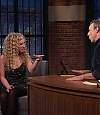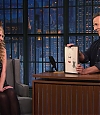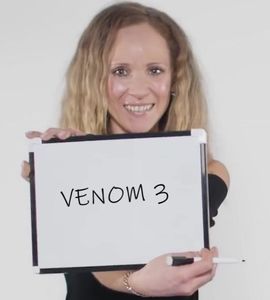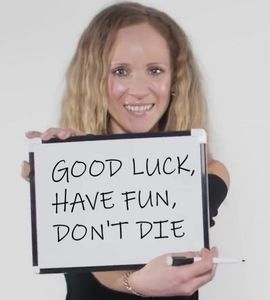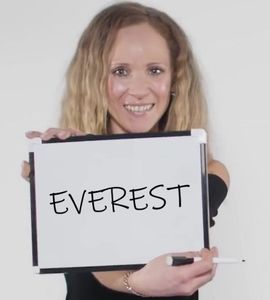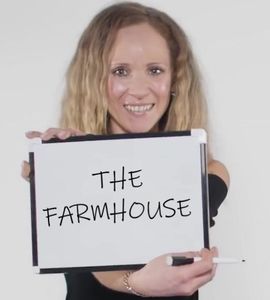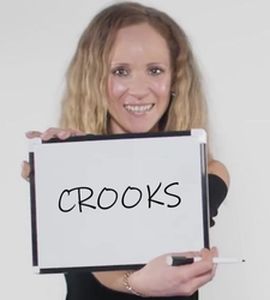More interviews with Juno about ‘Lost Transmissions’, this time only texts:
In ‘Lost Transmissions’, Juno Temple plays Hannah, a shy songwriter, who learns that her record producer mentor, Theo (Simon Pegg), is schizophrenic. The film follows Hannah as she takes care of Theo, while navigating the United States’ frustrating healthcare system and trying to keep her songwriting career afloat.
But for Temple, the most difficult scene of ‘Lost Transmissions’ to film wasn’t one of Hannah’s many breakdowns as she struggled to keep Theo out of harm to himself and others, but the parts where she had to sing live for the camera. “What I think challenge-wise, but not an emotionally grueling moment, was all of the singing stuff because that’s not something I do naturally,” she says. “Singing a song in front of people is really hard. I choked a few times.”
“I got to sit down and talk to Katharine O’Brien and the first thing I asked her was, “Have you experienced anything like this?” And she said, ‘Yeah. This is actually something I went through with a group of friends with one of our nearest and dearest.’ It was a whole group of friends that experienced this with a friend. So Hannah is an arm, a leg, a toe, a nose from all different people. In my family, I’ve had schizophrenia around me. From a young age, I’ve talked to my mother. My mother is a therapist actually, so she’s an incredible person to talk to about life in general, but also talk about mental illness because she also knows about it on a medical level. I think mental illness is personal to each person. Also their reaction to medication is personal, so it’s one of those things where it’s a never-ending conversation really.
I was quite overwhelmed with the fact that it’s quite easy to get a prescription for something, like an antidepressant or things that people don’t necessarily need to be dependent on it. But when someone actually needs medication for something like schizophrenia, it’s a lot harder to get somebody on that medication. Because it does take a minute to kick in and keeping them in a safe place to let that medication kick in is really complicated. I didn’t know about that here [in the United States]. That was pretty fucking mind-blowing to me. It definitely opened my eyes to that.
I think the film is trying to say, ‘Let’s talk about it. Let’s learn about it.’ Because the more we listen, talk and learn about it, the more we can help people going through it. I think there’s still a lot of parts of the world that think of mental illness as an embarrassing, shameful thing, and it’s not. Do you get ashamed when you get the flu? No. You learn about how to make it better.
The scene that I find the hardest to watch is when Hannah goes to the homeless shelter and Theo is there. I thought Simon was so real in that scene that it really threw me when he looked up at me and he just wasn’t there. There was this appearance he managed to create and that was frightening and heartbreaking. It was one of those things, where I was like, ‘Oh my God. Was that real? Was it not?’
There are sounds going around all the time. If you really listen to those sounds, it can really take you to another place. With mental illness and things going around you, things become very heightened and sometimes that can become really frightening. So I think “lost transmissions,” that actual phrase, is about all the signs and sounds that are going around us and if we pay attention to them, they could make us feel mad or they could be teaching us something. It’s a fine line, isn’t it?”
(Editor’s note: This article is written in a way that it doesn’t state clearly who said the whole second part. It must have been Juno, but I didn’t knew her mom is a therapist.)
Congratulations on the film! How did you get involved in Lost Transmissions?
I got sent the script and I read it and it really effected me, it felt very personal. I thought the characters were so beautifully nuanced and so honest and Simon Pegg was attached before I was and I thought it was going to be such a brilliant role for him because he comes from a background of so much comedy but he’s such a fiercely intelligent human and I also think that most humans, when they’re going through things that are challenging in life, do tend to bring humor into it to get through it and so I thought it was really genius casting and I think he’s pretty amazing in this film. Then, I read the script and I responded immediately, loving it, and I met with Katherine and I just think she’s one of the most truly graceful humans I’ve met in my life, she carries herself with such grace. Yet there’s a huge world of experience in that graceful creature that I found intoxicating and I was really excited to work with. I really am grateful because I think my mind was expanded from this experience.
What is the origin of this story?
It’s something that Katherine experienced with a friend and I think, that’s what I mean about opening the doors to talk about it, actually, a lot of people battle with mental health issues. One is schizophrenia, one is depression, an eating disorder is a mental illness. You know, I put my hand up and I say, I battle with stuff and I’ve got a lot of family members that have been through all different kinds of mental health issues and I think it’s something that really is important to start talking about because actually if we start talking about it people won’t feel so alienated if they’re going through it. Also, if we start talking about it, people will be more honest about what they’re going through in their own minds, you know? And I don’t think, banish is maybe too extreme of a word, but banish people from everyday life because of their mental health. I think that really needs to start changing.
What are you hoping the audience takes away from Lost Transmissions?
I hope they are open to learning more about mental health and about what mental health means and what it is to have people that are suffering from mental health issues in your life and actually being something more fluid in open conversation, I think that’s really important and I really hope that people start really talking about it if they see this film.
And here’s a third interview, but I warn everyone, it’s full of spoilers, because the journalist basically wrote down everything that happens in the movie.


